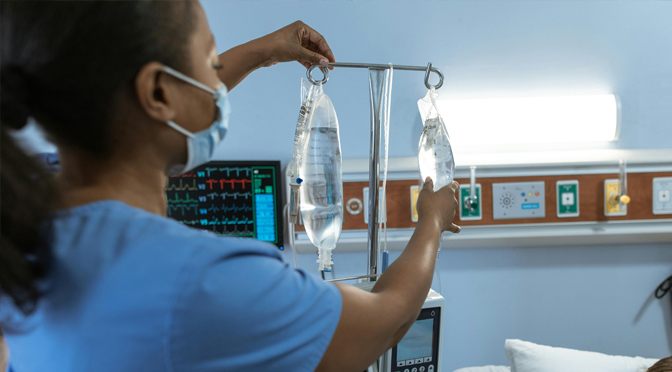Bethlehem, April 2, 2024 – Senator Lisa Boscola announced today that she will be introducing legislation requiring licensed medical facilities in Pennsylvania that utilize IV bags and other medical devices made with Diethylhexyl Phthalate (DEHP) to formally notify patients of their use and the documented risks posed by this toxic additive. Her proposal would also require a phase out of DEHP IV-bags and tubing over time, starting with high-risk patients (NICUs, pediatrics, and cancer patients).
“My legislation is critical for patient safety as extensive research has indicated that exposure to DEHP can have serious health repercussions especially for high risk patients,” Boscola stated. “My proposal gives Pennsylvania the opportunity to become the national leader in reducing the use of toxic additives in medical devices. I am proud to have the support of health systems here in eastern Pennsylvania.”
“St. Luke’s does not use IV solution containers that contain PVC or DEHP and we support Senator Lisa Boscola’s efforts to make sure all patients across the Commonwealth are similarly protected from these harmful forever chemicals,” Dr. Jeffrey Jahre, Senior Vice President Medical and Academic Affairs, St. Luke’s University Health Network, said.
DEHP belongs to a family of chemicals called phthalates which are added to certain plastic products to increase their flexibility and reduce brittleness. Some medical products such as IV bags and tubing can contain up to 40 percent DEHP by weight. Those additives leach to varying degrees, proving problematic, as extensive research suggests exposures during critical periods of development can interfere with testosterone production and disrupt normal male reproductive development. Studies have also found that DEHP may contribute to increased drug resistance, in the treatment of breast cancer patients, interfering with breast cancer treatment and increasing the likelihood of relapse.
Information provided to TVL by:
Kurt Derr




